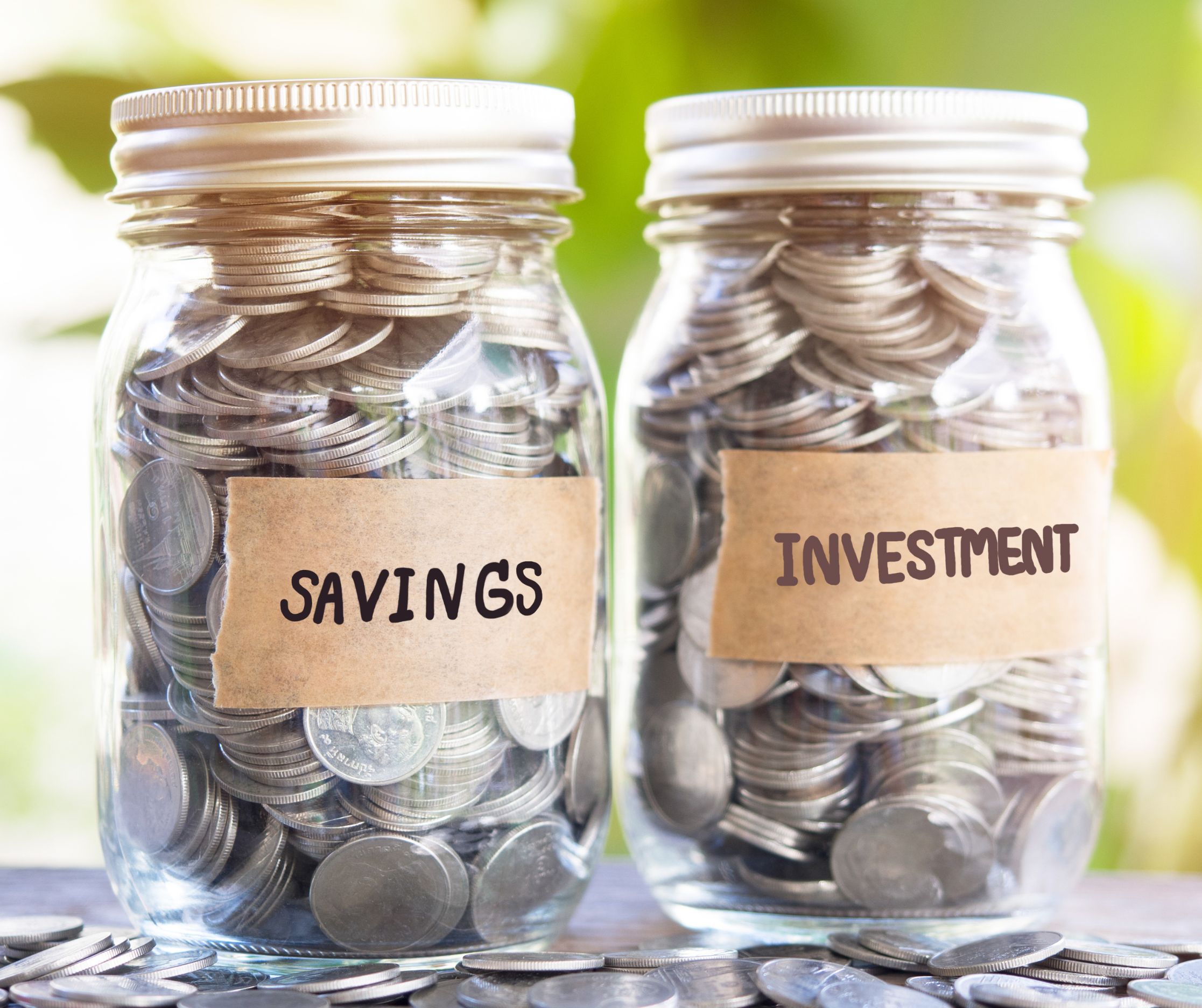Saving money Vs investing - which one is right for you?
Whether you’re setting aside a little each month or you’re choosing where to squirrel away a large sum you’ve inherited, you want to be sure you’re putting your money in the best place possible. But where the best place is will depend on your circumstances - whether you want to access your money in the near future and whether or not you have other savings in your name.
Read on for our guide on the pros and cons of saving, if investing your money is a good idea for you and everything you need to know before you save or invest.

The difference between saving money and investing
Saving and investing have quite a few differences but the main one is what happens to your money. When you save, your money sits in a low risk account, which will give you a percentage interest rate on the amount you put into the account.
If you invest, the way you earn interest is higher risk but has the potential to earn you more in the long term. Unlike savings accounts, which have fixed interest rates, investments rise and fall with the stock market, so the money you earn can go up and down (sometimes drastically) over time.
Saving is putting your money away to keep it safe and make interest. Investing is about making the most of your money’s buying power over time, and making it work for you in the long term.
The pros and cons of saving
The biggest advantage of saving is being able to access your money in the short term. If, for example, you think you may want to access your money within the next year or so, saving can give you better access to your money. Saving is also a lower risk option, so you won’t lose money in the short term if you go down this route.
The low risk and immediate access to savings does have a downside; typically saving doesn’t make you as much money in the long term. This is because you lock in your interest rate when your account opens, and you won’t get a real terms increase in interest if, for example, interest rates go up.
The pros and cons of investing
The pros and cons of investing are almost the reverse of the pros and cons of saving. When investing, you have the potential to make more money in the long term. This high risk nature may yield higher returns but it also means you lose an element of control once your money is invested, and the money you earn from your investment isn’t guaranteed.
Unlike savings, money that is invested is not as easy to access so if your goals are short term such as saving for a holiday, investment won’t be the right choice right now.
Know your long term goals
Choosing whether to invest or save ultimately comes down to your long term goals. Perhaps you’re putting money away for retirement or you want to save for your children’s future. If you have a lump sum that you don’t want to access for a number of years, this is where investments can pay off.
Knowing your short-term goals is equally as important. If, for example, you’re saving so you have an emergency fund for a rainy day, you will need your money to be in a place that is easily accessible such as an instant access savings account. Having money tied up in investments is harder to access if and when you have an urgent car repair or need to pay for a replacement boiler.
Understand the different types of investment
If you’re considering investing, then you need to know what investing involves and the different types of investment options available to you. The most common investments are stocks and shares where you buy into a company and potentially earn dividends or capital gains as the company grows. There are also funds that pool money from many investors to purchase a broader portfolio of assets. Both are long term investments that can provide good returns over time.
However, investing isn't just limited to stocks and funds. There are also bonds, which are essentially loans you give to companies or governments in exchange for interest payments over time.
If you want to start investing, first consider your risk tolerance. Stocks can be volatile, meaning their value can fluctuate significantly in a short period. On the other hand, bonds are generally considered safer but may offer lower returns.
Consider diversifying your savings and investments
One of the main considerations in saving and investing is diversification. This means spreading your money across different forms of saving to reduce risk. By not putting all your eggs in one basket, you can protect yourself from market fluctuations. For example, if stocks are performing poorly, savings accounts will provide stability.
Knowing when to start saving or investing
Starting to save or invest early can impact your financial future. The earlier you begin, the more time your money has to grow. Knowing when to choose either saving or investing, and which one is right for you, is a very personal decision. If you’re considering either, make sure you stay informed on the best options out there. The market can change, and so can your personal circumstances. Regularly reviewing your savings and investments and staying educated about market trends can help you make informed decisions.
